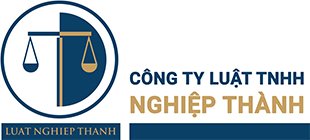Foreigner to rent low-budget accommodation in Viet Nam?

Original article in Vietnamese: Foreigner to rent low-budget accommodation in Viet Nam?
With the pace of modern life, means of transportation becomes more advanced, the economy is growing day by day. Also, the need for discovery, travel, business, and life in foreign countries arises considerably. Accommodation is one of the issues that draw much attention to foreigners when they come to Viet Nam. A question was sent to Nghiep Thanh Law about whether foreigners can rent budget studio flats in Viet Nam. In this regard, we will give some advice below:
We can understand the term “low-budget accommodation for rent” as the fact that many households take advantage of the empty space of their housing to build hostels, and studio flats, in some places, houses are renovated into many rooms (lodgings), and many terraces available for students, workers, etc. to rent, thereby forming continuous rows or an area of accommodation for rent, which is known by an ordinary term as “hamlet” of rental housing.
In accordance with the provisions of current Vietnamese law, foreigners are allowed to rent houses, rent affordable accommodation in Viet Nam. However, this transaction must also be based on a case-by-case basis and must meet the following statutory requirements:
Requirements for rental housing: The housing must:
– not be involved in disputes, complaints, and claims about ownership rights;
– be in the period of ownership in the case of ownership having a certain period of time;
– not be seized for judgment enforcement or execution of a legally effective administrative decision of a national competent authority
– not be subject to a decision on land acquisition or a notice of clearance or demolition issued by a competent authority.
In addition, rental housing also needs to:
– ensure quality and safety for tenants
– have a full electrical system, water supply and drainage
– protect the environment.
Requirements for landlords: Must be a person with full civil act capacity. In addition, that person must be the owner of the house or the person authorized by the owner to perform the lease[1].
Requirements for foreigners to rent accommodation:
Temporary residences for foreigners in Viet Nam include tourist accommodation establishments, guest houses, housing for foreigners to work, study, and serve their. internships, medical examination and treatment establishments, private houses or other accommodation establishments as prescribed by law[2]. However, the current laws do not specify what types of “other accommodation establishments” include. Therefore, low-budget accommodation for rent can still be considered in this case.
Currently, the national competent authorities provide over 20 types of visas allowing foreigners to legally enter Viet Nam. Each type of visa is issued in accordance with the purpose of entry of each individual. This not only helps foreigners know the type of visa they need and the benefits they have, but also makes it easier and more convenient for national authorities to manage immigration and temporary residence of foreigners in Viet Nam.
The period of time that a foreigner is recognized as a temporary resident in Viet Nam is the duration of the visa granted[3]. Each type of visa will be issued with a certain duration. For example, if foreigners enter Viet Nam for the purpose of work, they will be granted a visa with the symbol LD with a maximum duration of 2 years; if for tourism purposes, they will be granted a visa with a symbol DL for a period of no more than 3 months, etc. Thus, foreigners need to know what type of visa they are granted to determine the specific duration that they are recognized as a temporary resident in Viet Nam.
If the above requirements are satisfied, the rental housing transaction with a party as a foreign individual should be carried out according to the following procedure:
A lease agreement must be made in writing by both parties.[4] The contents of the contract should ensure the following basic elements:
– Full names and addresses of the parties;
– Basic features of the rental housing;
– Deposit, monthly rental price, electricity, water and other arising costs (if any);
– Time of monthly rental payment of tenants; duration of rental period;
– Rights and obligations and commitments of the parties;
– Effective date of the contract;
– Date, month and year of signing and signatures (specify full name) of the parties.[5]
Like other civil transactions, contracts for foreigners to rent accommodation and houses may also have unforeseen risks arising. The laws do not require notarization, authentication of this type of contract.[6] However, in order to prevent risks and ensure safety and interests for themselves, the parties should have the contract notarized and authenticated at a national competent agency. Also, foreigners need to register for temporary residence at a national competent agency.[7]
The contetn above is the advice of Nghiep Thanh Law on “Foreigner to rent low-budget accommodation in Viet Nam?”
Nghiep Thanh Law thank you for reading and sharing. We look forward to receiving your feedback and suggestions.
Translator: Le Khanh Linh
Updated on: June 16, 2022
Content writer: Vo Thi Minh Thuong
Supervisor: Lawyer Thuan
[1] Article 119.1 Law on Housing 2014.
[2] Article 32 Law on entry, exit, transit and residence of foreigners in Viet Nam 2014.
[3] Article 1.13 Amendments to a number of articles of Law on entry, exit, transit and residence of foreigners in Viet Nam 2019.
[4] Article 120.1 Law on Housing 2014.
[5] Article 121 Law on Housing 2014.
[6] Article 122.2 Law on Housing 2014.
[7] Article 33.1 Law on entry, exit, transit, and residence of foreigners in Viet Nam 2014.
Views: 47




